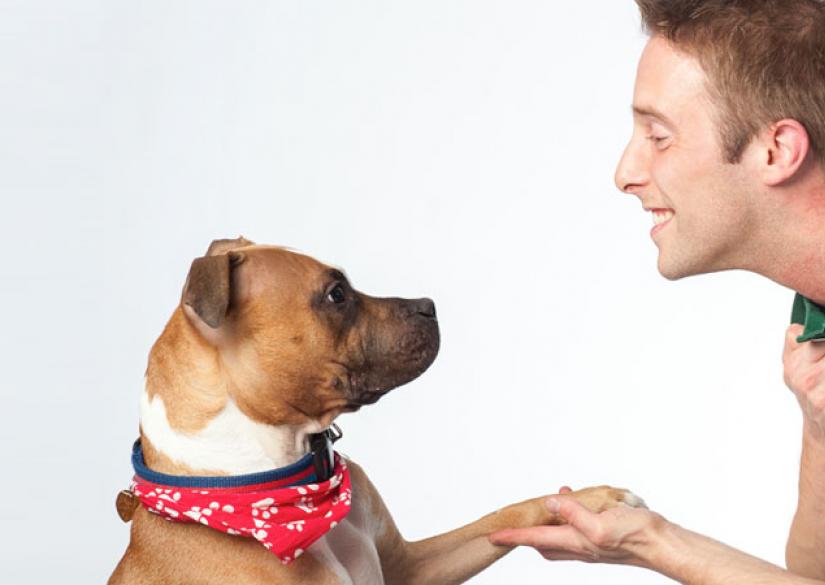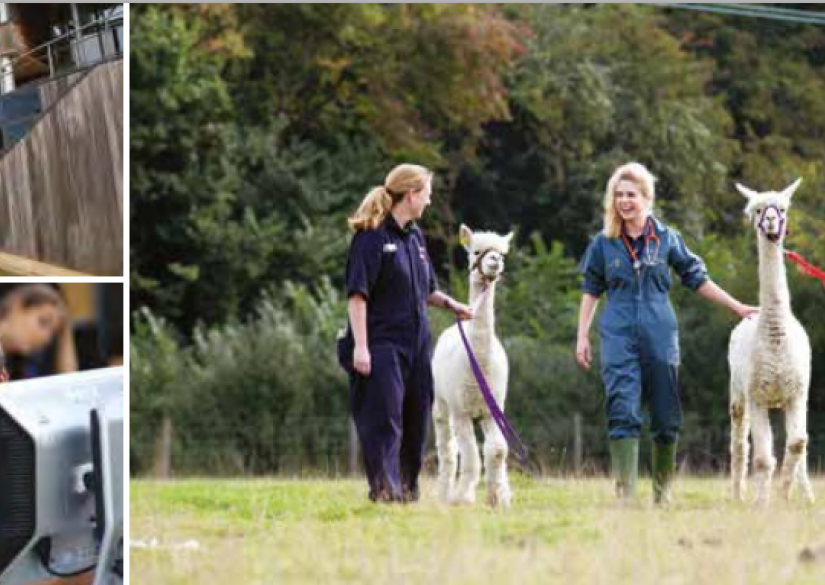Royal Veterinary College in University of London
In the process of preparing the material, we referenced the following sources: Wikipedia, THE, nature index, The Complete University Guide, Telegraph, US News
Description of Royal Veterinary College in University of London
Royal Veterinary College (RVC) is a unique institution of its kind. The university has been working since 1791. The status of the university was obtained in 1875. To date, the Royal Veterinary College is the only college in the United Kingdom that provides veterinary specialization, giving students a university level of preparation. Since 1949, the university is a member of the University of London.
This prestigious educational institution in the southeast of England has two campuses. The main one is in the center of London. The second is located in Hertfordshire in the city of Potterm Bar. Camden Campus in the British capital accepts freshmen, who study on the programs "Veterinary Medicine", "Bio-veterinary Sciences" (Bachelor's degree). To the campus in Hertfordshire from London it takes 20 minutes by train. This department of the educational institution serves as a base for students of 3 - 5 courses of veterinary and veterinary care.
Highly qualified teaching practitioners work at the university. There are 129 specialists in the staff. Scientific workers of the university regularly conduct research in the areas of infection and immunity, musculoskeletal system, reproduction, genes and their decoding, cardiovascular system, inflammatory processes in animals.

What advice do you have for those aspiring to attend top UK universities?
Thoroughly research your chosen university, including tuition fees, as these can vary widely. Prepare well for English proficiency tests like IELTS, which are essential for admission to any UK university. Focus on your preferred courses, checking their specific academic requirements, and ensure you are well-prepared in those areas.
Educational process
Students spend most of their time in practical classes. A farm located in Hertfordshire helps students to acquire applied skills: a wide range of practical tasks, demonstrations, care, education, and treatment are carried out here. Local animals are accustomed to the fact that young specialists communicate with them, so they are happy to make contact. Last year, the students spent more than 16,000 hours on the farm! This figure is increasing from year to year.
Typical activities on the farm:
- Weekly check-ups, herd health assessments,
- Lambing practice, night duty,
- Assessment of lameness,
- Emergency visit to the veterinarian,
- Rectal examinations,
- Elective Projects, Presentations,
- Classes on feeding, proper nutrition,
- Animal Handling Practices,
- Milk testing,
- Trimming of the hooves of cattle, sheep,
- Animal Welfare Sessions,
- Poultry management.
Faculties and colleges
Academic faculties that are part of the RVC:
- Comparative Biomedical Sciences,
- Clinical Science, Services,
- Pathologies, Population Sciences,
- Professional services.
In addition to the two study campuses, the college operates its own farm set up for practical training.
Scientific achievements
RVC has devoted most of its existence to research. It is home to several hospitals, including the Queen Mother's Animal Hospital in Hertfordshire, which now accepts more than 7,000 pets a year, and the London Bioscience Innovation Centre, which is home to more than 40 life sciences companies.
The college's research work covers two main themes:
- Comparative Physiology, Clinical Sciences (CPCS),
- Integrated Animal Husbandry, Food Systems Studies (IRLFS).
More detailed areas of scientific research in recent years:
- Fight against little-known and rare tropical diseases,
- Development of new clinical therapies for regenerative medicine,
- Improved diagnosis, treatment of heart disease in pets,
- Improving the long-term treatment of diseases of cats, dogs,
- Prevention of mass mortality of saigas in Central Asia.
Things to know about
The story behind RVC is truly entertaining. In the 1769-1770 season, a horse named Eclipse dominated English racing. Eclipse retired from racing in 1770 undefeated, remaining at the stud farm until he died in 1789 at the age of 25. To understand the cause of Eclipse's death and the secret of his racing success, a veterinary examination was required. The only qualified veterinarian in the country at the time was a Frenchman, Charles Benoît Vial de Saint-Bel, who enlisted support for his plan to establish a veterinary school. St. Bel had the support of the Odiham Agricultural Society, whose members recognized the need for a better understanding of animal husbandry, disease. Since then, Thanks to the initiative of leading veterinary specialists, the Royal Veterinary College was established in London.
Programs and prices, tuition fees in Royal Veterinary College in University of London
Short information about the program, designed for 3 academic years, allows you to obtain a bachelor's degree in veterinary medicine.
Royal Veterinary College offers studying in the following specialties:
- Veterinary medicine;
- Biotechnology;
- Biomedicine;
- Biology.
All the programs of the course are practical-oriented. The college, which has the status of the university, prepares nurses, veterinarians and surgeons.
- Students age: 18+
- Start dates: September.
- Requirements for enrollment: certificate, Foundation certificate, IELTS 7.0.
- The result of the studying: obtaining a degree in the relevant field, the opportunity to find employment in one of the leading British or American veterinary clinics.
- Lesson duration: 45 minutes.
Short information about Master's Courses for veterinarians, surgeons, nurses with a Bachelor's Degree.
Masters students can study in the directions of:
- Veterinary Medicine (international abbreviation MVetMed);
- Bioveterinary Sciences (MSc, respectively).
The course includes theoretical studies, practical modules, and involves an internship in veterinary clinics on the campus in Hertfordshire. Masters students can develop as practitioners, and also focus on the field of scientific research. The laboratory base provides the possibility of conducting experiments of any complexity.
- Students age: 21+
- Start dates: September.
- Requirements for admission: the certificate of the preparatory program, the diploma of the first higher education, IELTS 7.0.
- The result of the studying: defense of the thesis, obtaining a master's degree, career prospects in Britain and / or the USA.
- Lesson duration: 45 minutes.
Doctoral Programs
- Age — from 25 years old,
- The duration of study is from three years.
Doctoral programs organized at RVC are suitable for those who already have experience in the veterinary sector, offer students the opportunity to develop their professional role, acquire advanced research skills along with the knowledge taught.
Some of the doctoral courses are taught by correspondence, which allows students to combine the acquisition of knowledge with the work at hand. Students take three to eight years to complete the course.
The disciplines taught in the field of veterinary medicine will help to expand and deepen knowledge. Assessment is carried out through intra-course assignments and exams. As a PhD student, the student will also be able to attend workshops on teaching skills transfer, research lectures.
The professional doctorate will culminate in research focused on the chosen organization. The project will be linked to a relevant workplace issue related to professional practice or directly to the company that sponsors the student. Most students conduct their research at their workplace.
The PhD focuses on several research topics:
- Comparative Physiology, Medicine,
- Animal husbandry, health.
Accommodation, meals, prices
The institution has a modern housing stock. 95% of freshmen are accommodated annually. In London, students are accommodated in three residential blocks. In each of them 1-2 comfortable rooms with conveniences are offered. Kitchen, laundry, lounge and games are in common use. Meals are not provided.
Hertfordshire also has 3 student residences, offering standard and comfortable rooms. Living in the first can use common facilities (1 bathroom for 6-7 people). The comfort rooms are provided for each student.
Subjects, specialties
Activities Royal Veterinary College in University of London
Students of Royal Veterinary College are educated on their own. In the student council of the university they can recommend a lot of interesting programs, directions, routes. The convenient location of the college makes it possible to travel around the country on weekends. Students are waiting for university cities (Oxford, Cambridge and others), Stonehenge, seaside towns.
Student life on campuses by definition can not be boring, everyone will find something to their liking. In the university there are many clubs (foreign languages, art, music, zoology, etc.). In addition, Royal Veterinary College practically does not restrict its students in the choice of sports sections.
The daily routine
The schedule depends on the course of study, program, specialization.
Advantages
- Royal Veterinary College is the best college in UK in theory and practice medicine. The university educates highly qualified specialists in the field of clinical practice, bio-research, veterinary care as it needs to be in top universities in UK.
- The college uses innovative teaching methods. The focus is made on innovation, which makes education in the university modern, relevant to today's requirements of the region.
- The partners are world-renowned expert industry companies. In them, as well as in other veterinary organizations, students of different courses undergo studying.
- The College, a member of the University of London, supports British veterinary medicine through cooperation with specialized hospitals in the field of diagnostics, therapy, and surgery.
- On the campus of the college there are operating veterinary clinics, which accept more than 8000 patients annually. In hospitals, students study veterinary medicine in practice, receive the necessary experience for the subsequent independent medical work.
- This is the only veterinary college in Britain accredited by the American Association of Veterinary Medicine. Its graduates can get a job in their specialty both in Europe and in the USA.
Facilities and equipment at Royal Veterinary College in University of London
The campuses of the college are equipped with everything necessary for effective studying. Students have access to a specialized library, which has no analogues in the country. It has more than 30,000 books, journals, methodological materials on veterinary medicine. On the territory of each campus there are veterinary hospitals. In London, this is Beaumont, a clinic and research center, in Hertfordshire - Large Animal Practice, Sefton Equine, QueenMother, Large Animal Practice.
Admission dates and extra charges
Additional fees:
- Registration fee;
- Visa services and fees;
- Accommodation reservation;
- Deposit (refundable);
- Supervision,
- Flight.
Enrolment process
The procedure for admission to the programs includes several registration stages:
- Submission of the application, submission of the necessary documents,
- Payment of the registration fee,
- Receiving an official letter from the admissions committee with an invitation to take entrance exams if necessary, assistance in obtaining a visa,
- Making a deposit to book a place on the course, in the residence,
- Arrival at the campus and start of training.
Enrolment statistics
The highest competition among Royal Veterinary College's programmes is recorded annually in the Bachelor of Veterinary Medicine (BVetMed) course.
Perspectives
RVC graduates achieve excellent results in final exams, when entering subsequent stages of education, and at the beginning of their careers. RVC staff and teachers help students at every stage by providing quality knowledge, internships, extracurricular activities, and employment assistance, so students quickly become leading specialists in their chosen professional field.
Entry requirements, how to apply, what is required to enrol
Foreign nationals wishing to pursue a bachelor's or master's degree must meet the general entry criteria:
- Personal documents: passport, health insurance, visa or residence permit,
- Certificate of completion of upper secondary education / Bachelor's degree in a related field, assessment reports, exam results,
- Certificate confirming the level of English proficiency: IELTS 7.0 or equivalent,
- Individual achievements: research papers, certificates, grants or other academic materials confirming the level of passion for the chosen specialty. Achievements can also be in areas of interest that are not related to studies: sports, creativity, charity, or other areas that show the diversity of hobbies of the future student.
Depending on the profile of the program, candidates may be required to submit additional study documents or pass entrance exams.
Scholarships Royal Veterinary College in University of London
The institution offers funding assistance, awards for academic, extracurricular success. Students have access to scholarships, support from the UK government, and funds for foreign citizens.
Some of the scholarship programs are:
- RVC Scholarship for Distance Undergraduate Students – Assistance for Students from Low-Income Families Learning from Home,
- Specialized faculty scholarships based on academic achievement,
- RVC International Scholarship for Candidate Admitted to the Bachelor of Veterinary Medicine Program,
- Loans for master's and doctoral students – financing of the course, accommodation (in a repayable format),
- Postgraduate Scholarships for Masters with Outstanding Academic Credentials,
- Loans for doctoral students,
- Competitive Scholarship for International PhD Applicants, provided on the basis of previous success,
- DFID Commonwealth Scholarships (for students from Commonwealth member countries),
- BVNA scholarship from partner companies that annually select successful students of the faculties,
- Helena Kennedy Foundation – financial aid, mentoring, support for low-income students.
The college provides students with the opportunity to gain applied experience on internships based on partner organizations: all internships are fully funded, payments for them are provided for the entire period of work.
Literature and references
Institution on the map
Residence permits, citizenship and other services
- Guardianship services during the studies
- Student supervision
Review about Royal Veterinary College in University of London
Good afternoon!
I think it necessary to write a review about my college, because the direction is specific and not so demanded, therefore it is difficult to find decent information. I study in London at the Royal Veterinary College on a Bachelor's program. I am very pleased with the organization of the trip from Smapse.
This institution, I confess, caught my eye accidentally, but I always wanted to work with animals (parents had a farm, so since childhood I was familiar with it). I know that abroad a veterinary is a very necessary profession, in demand and paid well. I thought it would be great to combine my interests with a good diploma and the opportunity to study abroad.
Of course, it was difficult to enter. With Smapse we have been preparing for 3 years: preparatory courses, IELTS exam (universal test for knowledge of English - without it foreigners aren't accepted), academic English, collection and translation of documents. I needed a Foundation program + to take an academic semester (it's convenient to get used to the local educational system and to bring up English), I did everything in London. Of course, it's more expensive here than everywhere else, but the city wins from the first trip - believe me, if you like London, you definitely will not want to leave it.
Studying is complicated, yes. You will not be engaged - you will lag behind, learn everything more long and eventually you can be expelled, but nobody needs this (after so much money and effort). Still I can not say that I know English fluently.
Separately I want to mention great teachers! You don't want to leave them as you have a lot of joint practices, excursions, trips, a lot of laboratory work. But the subordination is absolutely clear, yes, plus the British are quite closed people. But I have enough, I try to get the most information from communication with someone who is smarter than me.
After 2 years stuyding - I hope, all will go gradually even better, the diploma will be with good points, and I will find a job here. In terms of employment of foreigners, Britain is very skeptical, but the diploma of such a good university, I hope, will raise my rates.
Recommendations on when to apply
| Language courses, schools and children's language camps | Primary and secondary education - private schools | Preparation programmes for entering universities - higher education | Higher education (after completing accredited programs A-level, IB, High School) - Bachelor, Master, MBA |
| - we recommend to apply 6-9 months before the start of the course (some camps and schools offer discounts for early booking or for lengthy study programs) - there are some very popular and high demand children's camps, where the applications need to be submitted 1 year in advance (in particular Switzerland , Great Britain , USA , Canada , Austria) | - we recommend to apply one year before the start of the training program, - some schools have a specific time frame (September-November - please specify an individual school) - some schools require tests in several stages (UKISET, internal tests of the school: English, mathematics, logics, subjects, interview, some require a personal visit) | - we recommend to apply one year before the start of the program, - for Foundation and Pathway programs, IELTS and TOEFL certificates are usually required, respectively | - recommended submission one year before the start of the program, - the deadline normally closes in January, for TOP HEIs and, as a rule, in March in other universities - for a bachelor, a Foundation or Pathway preparatory program a completed A-level, IB, High School + IELTS / TOEFL are required - for Masters you need a graduated higher education, in some cases you need a pre-Masters program - MBA requires completed higher education, work experience preferably at least 2-3 years, etc. |







































